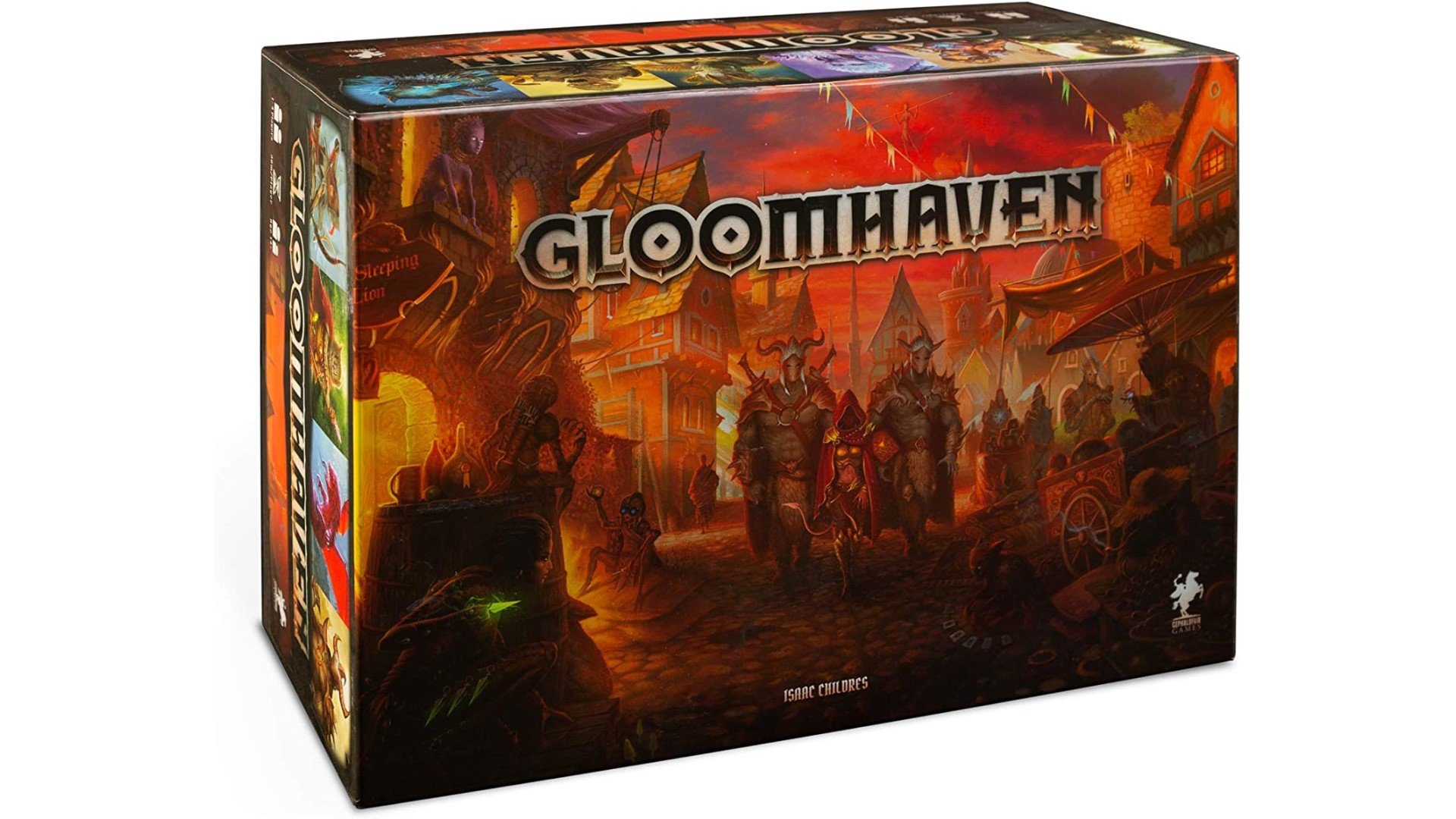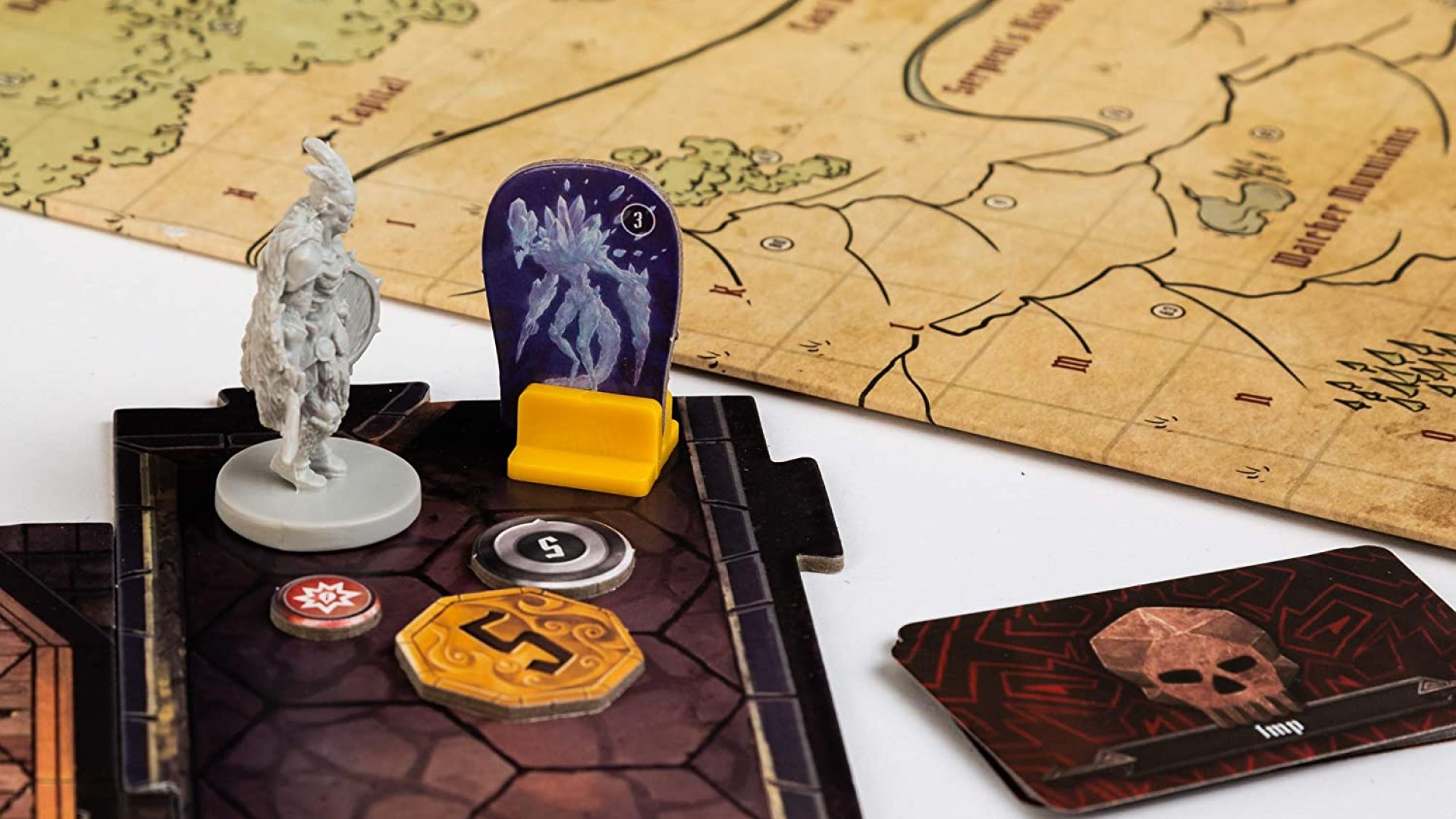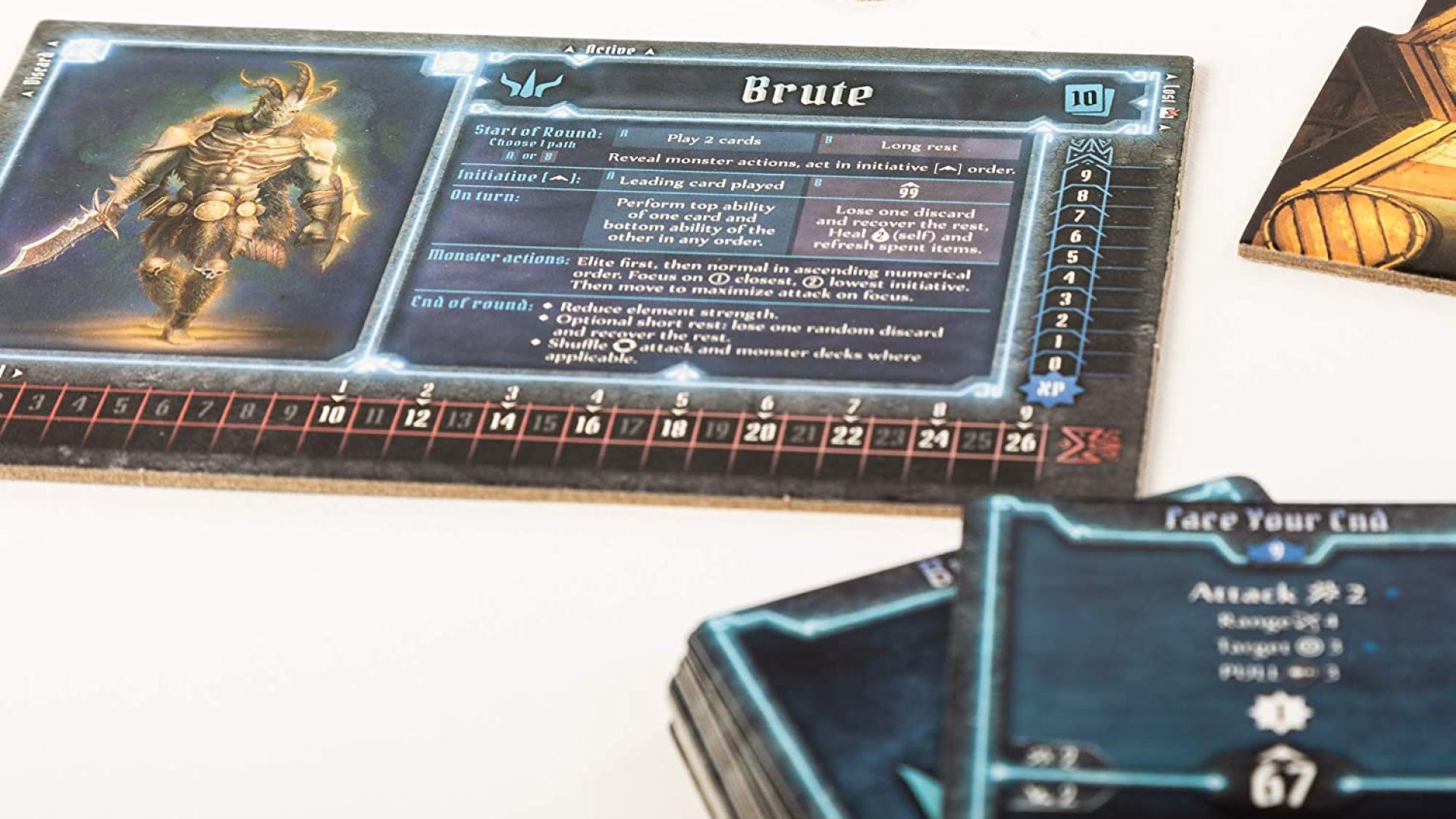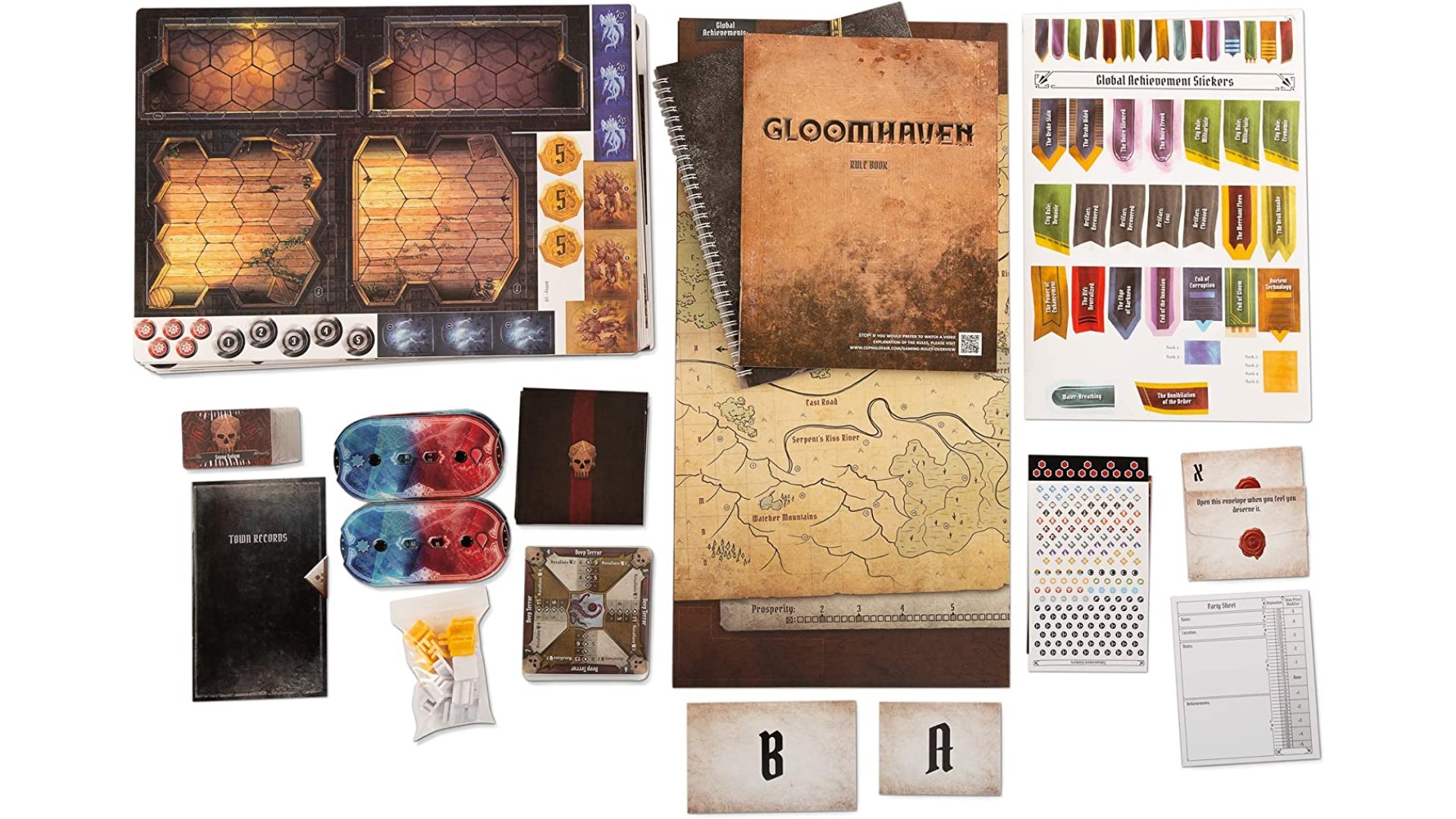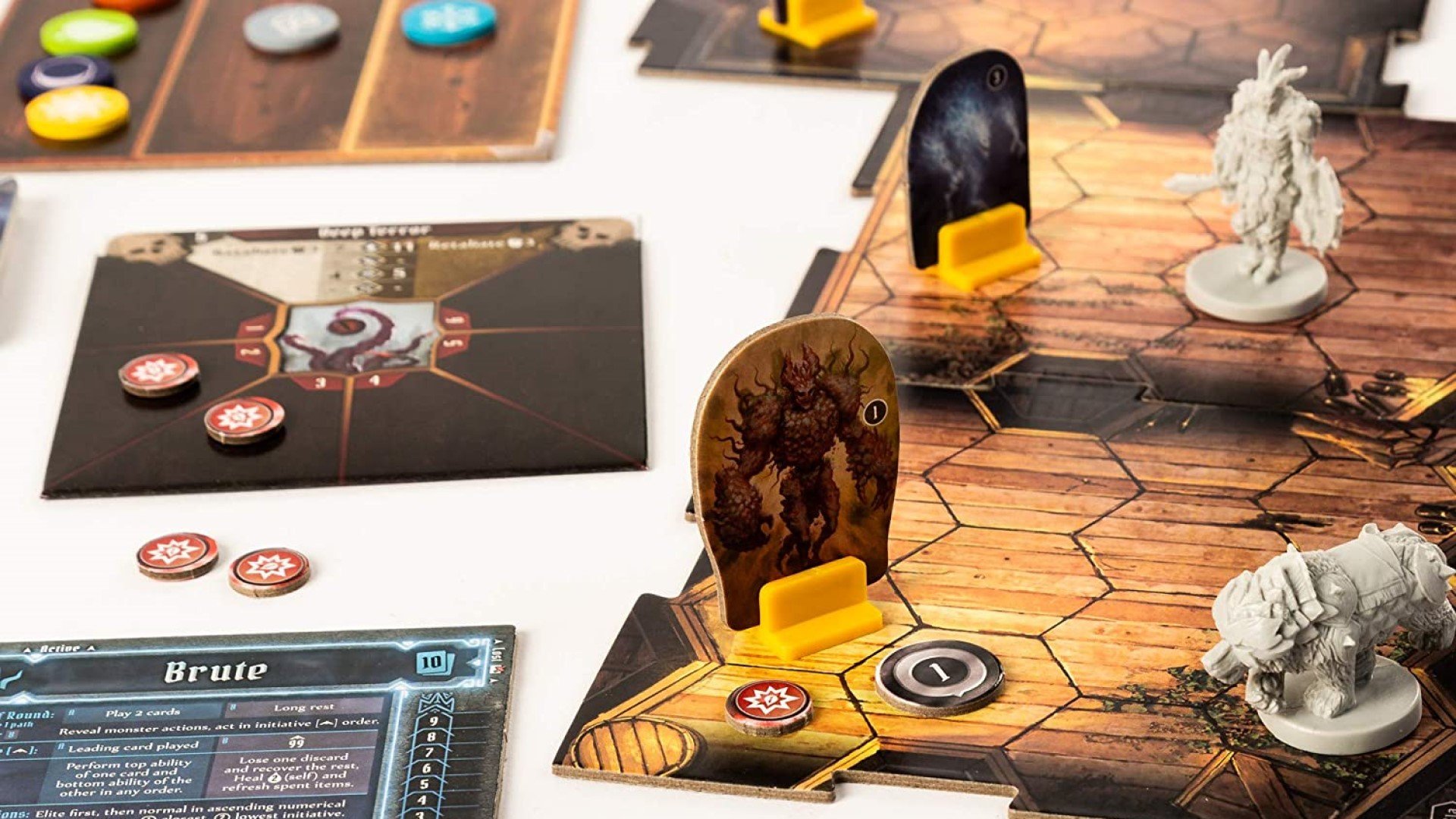If some sources are to be believed (cough-BoardGameGeek-cough), Gloomhaven is quite literally the best board game that has ever existed. This behemoth box of dungeon-crawling, card management, roleplay, and Eurogame-inspired combat has a frankly silly number of awards, nominations, and recommendations slapped on it. There’s a strong case indeed for those who believe this is the ultimate tabletop gaming experience.
But is Gloomhaven still one of the best board games to ever have board-gamed? Judging by our dungeon crawlers and coop board games guides, signs point to yes. But there’s more to unearth here – because while Gloomhaven is one of the greatest gaming experiences around right now, it’s definitely not the right buy for everyone.
Here’s my full Gloomhaven review:
What is Gloomhaven?
Designed by Isaac Childres and published by Cephalofair Games in 2017, Gloomhaven is a co-op dungeon-crawler board game for one to four players. Calling Gloomhaven just a dungeon crawler would be reductive, though. It’s also a legacy game with systems for levelling up and stickers that permanently change the board. It’s also got elements of tabletop RPGs, giving you a character with clear goals and story-driven encounters that require player decision-making.
As you can tell, there are a lot of gameplay elements to Gloomhaven (that’s why we have a Gloomhaven board game beginners’ guide for those in the early stages of learning to play). The board game is known for its memorable classes, its dicey dungeons, and a world so compelling it’s getting its own tabletop RPG.
One feature that Gloomhaven is perhaps most famous for is its combat system. Rather than rolling dice to measure the success of an attack, you draw from a deck during combat. This tells you whether you hit, as well as if you gain any helpful (or harmful) damage modifiers.
Gloomhaven has a hefty price tag, but it justifies this by stuffing its big box full of content. With 17 classes and 95 scenarios, this is a game you could be playing for years without running out of things to do.
The good bits
Gloomhaven is one of those board games that, when I go to bed after a night of playing, I can’t stop thinking about it. The hex-based dungeons haunt my dreams, and I drift off debating ways to improve my chances in a scenario or tweak my character decks. The core gameplay loop is fine-tuned, and once you know what you’re doing, it’s addictive.
This is a melting pot of varied game mechanics, but no one aspect spoils the Gloomhaven soup. Dungeons and encounters are varied enough to keep you on your toes, and the ‘story’ of Gloomhaven has twists, turns, and branching paths that surprise on the regular. The RPG aspect works well due to an intriguing levelling system, as well as battle goal cards, personal quest cards, and event cards that encourage you to make decisions in-character.
Speaking of roleplay, what never fails to impress is the way Gloomhaven manages to marry theme and mechanics. For example, Gloomhaven is a corrupt fantasy world where it feels like everyone is out for themselves – so, as a game mechanic, players can never tell each other exactly what they plan to do in a dungeon, and they’re encouraged to pursue secret objectives that might not always benefit the wider group.
Each of the classes has varied functions that are well worth exploring (though I often want to stick to my all-time favourite character, the Vermling Mindthief). Play for long enough, and you can explore multiple classes, retiring some as they achieve their personal goals and unlocking others as the campaign progresses.
This entire game is about the joy of exploring. Gloomhaven milks the childlike glee of the legacy game genre for all its worth, giving you boxes of ‘presents’ (new classes and miniatures) to open and new stickers to add to your map when you complete a dungeon or unlock an achievement. These mechanics also make the world of Gloomhaven feel alive, as your actions impact the prosperity of the land as well as your reputation in it.
Gloomhaven is enormous, and it does what it sets out to do with such enormous success that it’s hard to find space to praise every tiny detail. Just know this – if you consider yourself a hardcore board game lover and you haven’t tried Gloomhaven yet, you really ought to rectify that.
That being said, Gloomhaven isn’t perfect by any means.
The not-so-good bits
I’m just going to come out and say it. Gloomhaven is, hands down, one of the most inconvenient board games I’ve ever played.
The box weighs nearly 10kg (the postal worker who delivered it quite literally scolded me for my buying decisions). Inside you’ll find over 700 tokens and standees, as well as nearly 2,000 cards – and there’s basically no way to organise them without buying inserts for the box.
While you’re at it, you’ll probably want to buy reusable stickers too – as this game will be hard to pass on to future players if you’re permanently marking the board during a campaign. It’s a little disappointing that a game that already costs over $100 needs multiple additional purchases to make the game more efficient and usable long-term.
You could play several easy card games or a single strategy board game in the time it takes you to read the rules and set up a scenario. Despite all this reading, you’ll still be regularly flicking through the book to answer rules questions (or Googling it, because it’s faster). Expect to forget rules and make mistakes regularly. Sure, there used to be a companion app to help you manage the admin of Gloomhaven, but it was taken off app stores in May 2022.
Things get a lot smoother once you’re actually playing, but I found myself regularly forgetting about ongoing tasks like moving the round tracker or refreshing elements. Something about having to assign little jobs to each player like a parent teaching a child to clean their room was a bit of a turn-off.
Gloomhaven is a dense game, both in terms of rules and box weight. It’s made even more off-putting for new players because its opening scenarios are oddly difficult. When you can’t beat the first two or three scenarios for quite some time, things can get very repetitive. Gloomhaven shines so brightly once it gets going, but some may be put off before the gears ever get whirring.
Is Gloomhaven worth buying in 2023?
If you’ve never played Gloomhaven, I’d confidently say you shouldn’t be picking the big box up anytime soon. This isn’t to say you shouldn’t play at all, but there are far easier ways to approach this beast. Gloomhaven: Jaws of the Lion provides a stripped-back version of the same game that’s easier (and cheaper) to pick up, and there’s a digital version of Gloomhaven that can handle rules and admin for you. Plus, it goes on sale regularly, and you can pick it up for totally free on rare occasions.
If you’ve tried these already and love Gloomhaven – or you’re a seasoned adventurer ready to take the risk – then I’d say Gloomhaven is well worth picking up. However, there’s now Frosthaven to consider, too. Another big-box, standalone game in the same universe, this long-awaited follow-up may end up superseding the original. That’s a review for another time, though.
The best, most inconvenient board game
Gloomhaven deserved to be considered a masterpiece at launch. However, in a post-Gloomhaven world, the few flaws it has (horrible box design, dense rules, and an early campaign that’s harsh on newcomers) are far more noticeable. You absolutely should play Gloomhaven, but the digital version or Jaws of the Lion are a far better starting point.
Source: Wargamer



